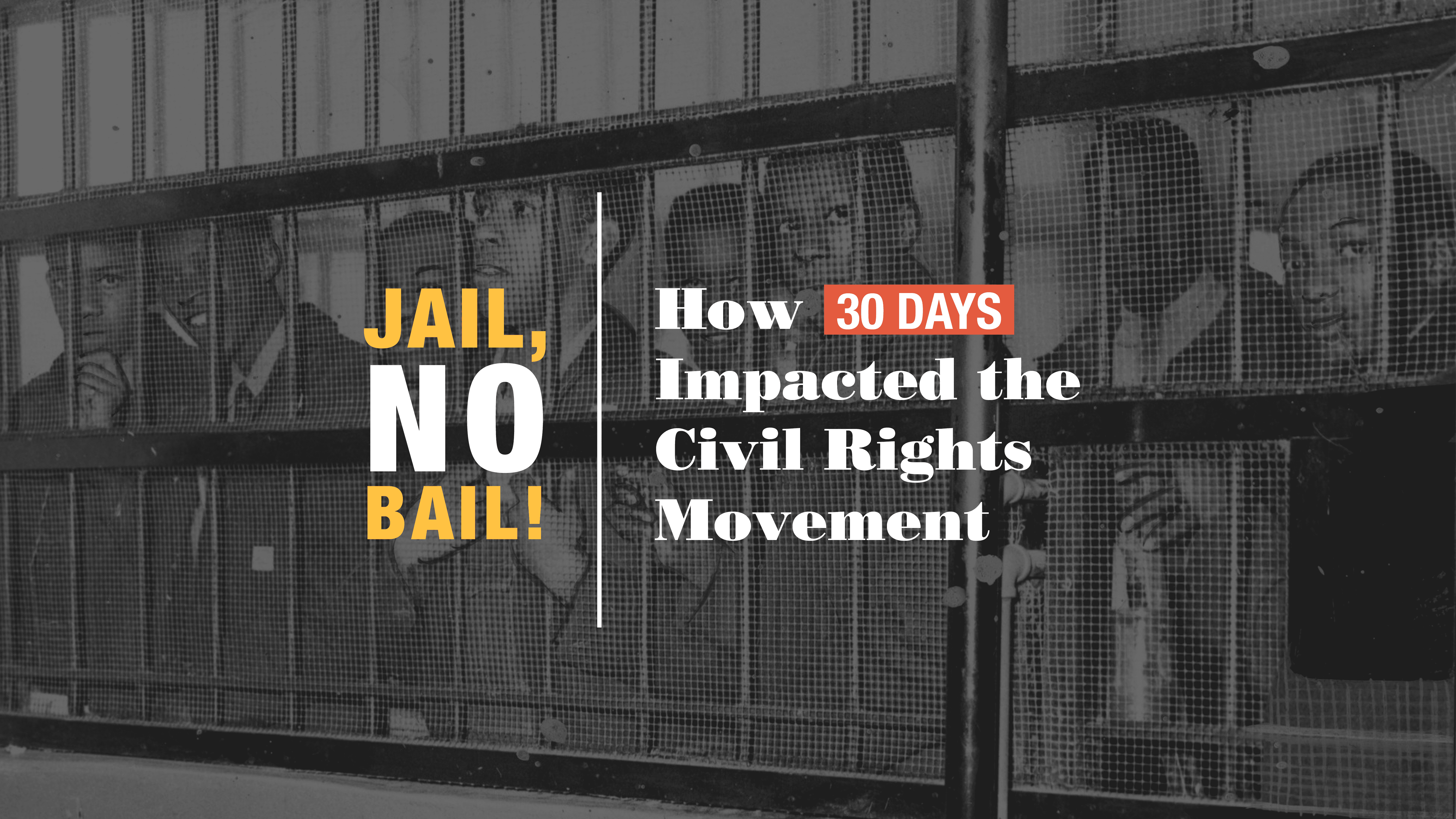The Visit York County Partners in Tourism Foundation has created a new permanent exhibit about the Friendship Nine Civil Rights historical event in Rock Hill. “Jail, No Bail: How 30 Days Impacted the Civil Rights Movement” will open to the public on Tuesday, December 14, 2021 at Kounter. SC Humanities supported this project with a Major Grant.
In 1961, young African American students from Friendship Junior College in Rock Hill staged a sit-in at the segregated lunch counter of McCrory’s Five and Dime. These young men were immediately arrested after ordering their food and sentenced to pay a $100 fine each or spend 30 days in jail. They chose jail, and their decision and subsequent terrible treatment, including hard labor and solitary confinement, received national attention and inspired other “jail, no bail” movements across the country. The “Friendship 9” are remembered for their important contributions to the Civil Rights movement both in South Carolina and nationally.
Kounter is a restaurant now located in the building that containted the former McCrory’s Five and Dime, 135 E Main Street Rock Hill, SC. The exhibit “Jail, No Bail: How 30 Days Impacted the Civil Rights Movement” will be located in the lobby and open to the public Tuesday – Friday 10-4 and Saturday – Sunday 11-4.
“Jail, No Bail: How 30 Days Impacted the Civil Rights Movement” includes biographies of the major participants, information about the “Jail, No Bail” movement, information on Friendship Junior College, an interactive timeline of the 30 days, and a place where visitors can respond to whether they would go to jail for 30 days for something important to them.
Brianna Francis of Visit York County Partners in Tourism Foundation spoke about the importance of this exhibit to the community: “From this exhibit, we hope to create introspective reflection for all that learn about the Jail, No Bail sit-in movement. We believe this will motivate individuals to reflect on how their decisions can make a large impact. The Friendship 9 have always pushed for history education, and our hope is that this exhibit continues that.”
The mission of SC Humanities is to enrich the cultural and intellectual lives of all South Carolinians. Established in 1973, this 501(c) 3 organization is governed by a volunteer 21-member Board of Directors comprised of community leaders from throughout the state. It presents and/or supports literary initiatives, lectures, exhibits, festivals, publications, oral history projects, videos and other humanities-based experiences that directly or indirectly reach more than 250,000 citizens annually.
